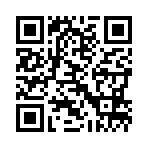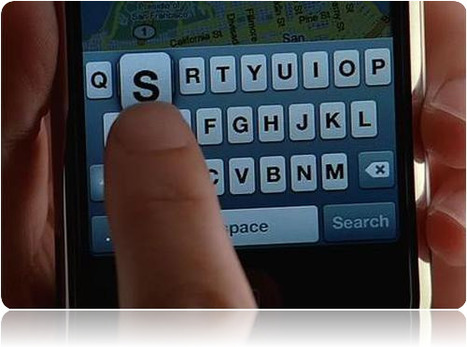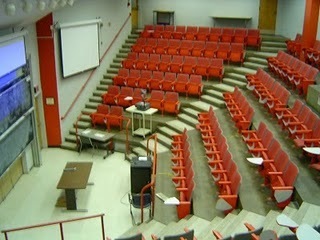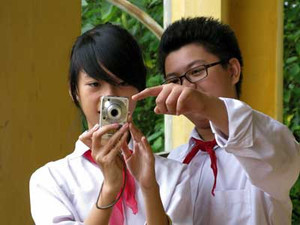 Your new post is loading...
 Your new post is loading...

|
Scooped by
Nik Peachey
October 14, 2011 5:37 AM
|
There is a case to be made that now is the greatest time in history to be a journalist. There is more access to all media, meaning a larger section of the populace has the chance to stay informed. In places where people have lived under oppressive regimes — like Egypt — the democratization of media has given hope for a freer society. Digital tools now exist that encourage reporting with greater depth. Journalism can be undertaken by crowds working in unison, allowing vast amounts of information to be pored over in ways never before possible. Mistakes can be corrected in real-time and stories can be updated as they unfold.

|
Scooped by
Nik Peachey
October 13, 2011 10:13 AM
|
Here are some classroom ideas for activities using a range of apps that teachers can try with their students. The activities are grouped into broad categories to provide a starting point however many of the apps can be used across a number of learning domains.

|
Scooped by
Nik Peachey
October 13, 2011 4:33 AM
|
So what will the coming decades hold for us? In tracking our progress in the technological-evolutionary journey, Kurzweil has identifies six epochs, each of which is characterized by a major paradigm shift.

|
Scooped by
Nik Peachey
October 7, 2011 2:02 PM
|
My co-presenter did a fantastic job of showing how an immersive game experience can spark various kinds of writing in the classroom while I focused on the links between game design and the writing process, and how kids can create (not just play) games.

|
Scooped by
Nik Peachey
October 7, 2011 3:45 AM
|
The 10 Elements of High Quality Digital Learning was released at the 2010 Excellence in Action National Summit on Education Reform in Washington DC. During the fall of 2010, the Digital Learning Council defined the elements and identified the actions that need to be taken by lawmakers and policymakers to foster a high quality, customized education for all students. This includes technology-enhanced learning in traditional schools, online and virtual learning, and blended learning that combines online and onsite learning.

|
Scooped by
Nik Peachey
October 6, 2011 6:31 AM
|
The image of the one room school house is imprinted in many of our minds as the building block of our modern educational system. It all started there, with one teacher, a crowded space filled with students of all age ranges – including some who may have been older than the teacher – one blackboard, and few, if any, materials for the class to work with. Jump ahead to today and the image has changed drastically.

|
Scooped by
Nik Peachey
October 3, 2011 9:32 AM
|
For the most part, language just works – by some mysterious process, people all over the world absorb the complex, underlying rules of their native grammars and store a vast lexicon of words and idioms in long-term memory. Effortlessly, we share stories, make demands, manipulate and delight one another with language.

|
Scooped by
Nik Peachey
September 27, 2011 5:24 AM
|
The outcomes indicate the majority of students rate themselves (n = 617) as a novice (66.3%), compared to a happy amateur (17.3%), a power user (11.5%), or rather anxious (4.9%). Many observations can be drawn from this, including we tend to have a new intake who have a really good grounding in software (desktop and web based). It also indicates the need to devote resources to a well designed student support package, as 22% are not engaging with web based material would rate themselves as anxious and stressed with respect to technologies in learning.

|
Scooped by
Nik Peachey
September 21, 2011 2:50 PM
|
Even though some large organizations have started using mobile technology to empower their workforce, for most others the question still remains – how do we actually use it in the workplace? Training departments are unsure how to design, develop and implement a successful mLearning strategy that works for their organizations.

|
Scooped by
Nik Peachey
September 21, 2011 5:33 AM
|
It's all about Think Aloud, that age-old trick of simply narrating everything you are doing as the wiser, more experienced brain in the room. Narrate your decisions and your rationale and you will be teaching your students how to make good decisions online and off. Good behavior online is trickle down, after all. Model it, live it, talk about it. It's all "using" technology.

|
Scooped by
Nik Peachey
September 19, 2011 5:15 PM
|
So the question becomes: What exactly are these things? What types of teaching do computers make uniquely possible? As it turns out, I’ve been asking lots of innovative teachers precisely this question over the last year as I’ve researched my book. They’ve tended to agree on the same list of concepts, some of which are really interesting and not the obvious ones.

|
Scooped by
Nik Peachey
September 18, 2011 11:46 AM
|
A growing collection of research suggests that students require new comprehension skills and strategies to effectively read and learn from text on the Internet (Biancarosa & Snow, 2004; Coiro, 2003a, 2003b; Sutherland-Smith, 2002). Reading online is a complex process that requires knowledge about how search engines work and how information is organized within Web sites—knowledge that many students lack. Internet texts also demand higher levels of inferential reasoning and comprehension monitoring strategies that help readers stay on task.

|
Scooped by
Nik Peachey
September 15, 2011 5:47 AM
|
If your students have access to a cell phone (or any digital device i.e. iPad, laptop) that can take and send/email pictures, they can make and publish their own books quickly and easily using Flickr. This is a great way to bring student books to life by publishing them digitally in a format that can be easily shared with the world or printed as a book for the classroom or school library.
|

|
Scooped by
Nik Peachey
October 14, 2011 4:27 AM
|
Teaching digital citizenship and internet safety is a lot more meaningful when students can engage in authentic online experiences.

|
Scooped by
Nik Peachey
October 13, 2011 9:27 AM
|
Many of us look at schools in which there is 1:1 iPad or Netbook implementation and drool with envy. “If only our schools were as innovative” or, let’s face it, “as rich, as these other schools” we think to ourselves. However, the other side of the coin is that many teachers also see iPads as nothing more than overrated books that glow. Is there no middle ground?

|
Scooped by
Nik Peachey
October 13, 2011 4:27 AM
|
For better or worse, the increased acceptance of cell phones in classrooms is a reality. Much of the professional world operates on mobile devices, which is part of the reason Palmer wanted to start teaching his students how to appropriately text and search for information.

|
Scooped by
Nik Peachey
October 7, 2011 7:15 AM
|
Idea Flight is a new idea that makes a first attempt at using iPads to replace both the expensive IWB and the data projectors in your classroom. In many ways it's a great idea that centres around using a $10 (£7) iPad (Pilot) app to share materials and interact with a classroom full of students.

|
Scooped by
Nik Peachey
October 7, 2011 3:19 AM
|
The I-slate looks similar to an iPad, with a seven-inch liquid-crystal touch screen display. But it's not a full tablet computer—in fact, unlike other hardware supplied to disadvantaged children through efforts such as One Laptop Per Child, it's not a computer at all, and does not have an operating system. "It's an elaborate, single-function device," says Palem. Kids can read from a preloaded textbook or take notes and work out math problems using a stylus on a "scratch pad" to one side of the screen. The device can store a few pages of notes.

|
Scooped by
Nik Peachey
October 4, 2011 4:08 AM
|
This review focuses specifically on the potential of neuroscience to inform the design and use of educational technology. It will be of interest not just to researchers but also to those concerned with the future role of technology in education.

|
Scooped by
Nik Peachey
October 3, 2011 9:13 AM
|
When I first read an iPad book to my son, back in April of 2010, I had a sick feeling in the pit of my stomach. What did these new picture books, with their instant appeal, mean for print books and more importantly, for reading as a pastime? Would my son ‘read’ or would he instead be distracted by books he could passively watch, or even worse, books that were more like toys and less like educational tools for literacy?

|
Scooped by
Nik Peachey
September 23, 2011 2:54 AM
|
You don’t have to know much about the psychology of learning to realise that a series of once-only, delivered lectures is pedagogic nonsense. We learn next to nothing from once-only experiences like unrecorded lectures. Indeed, everything we know about learning shows that repeated access to content is necessary for learning.

|
Scooped by
Nik Peachey
September 21, 2011 1:45 PM
|
The online characters – dubbed "chatbots" – employ high-speed speech recognition technology enabling them to conduct real time spoken conversations directly with students.

|
Scooped by
Nik Peachey
September 20, 2011 5:45 AM
|
Pine Glen was very fortunate to receive 60 iPads this school year on two Bretford Power Sync Carts! The Carts will make management of the iPads easier, because they provide a central place to store, recharge, and sync the iPads to the iTunes library on my laptop. It was quite a bit of work to get the iPads ready to go for the students. I made a few mistakes a long the way, but here’s the most efficient method that I’ve found for getting all the iPads up and running in a uniform manner, particularly if you already have a bunch of free apps and apps purchased from the Volume Purchase Program:

|
Scooped by
Nik Peachey
September 19, 2011 5:08 AM
|
Alas, one year on the website (The TED Teachers’ Network) is unused and hasn’t been added to or accessed for a long time. To be honest, I had forgotten about it until I saw a post on Martin Warter’s blog about a similar problem he had had with his school’s wiki for teachers. That got me thinking about why my attempt had failed - I think reflection of this kind is just as valuable as reflecting on what worked well, if not more so - and here’s what I came up with:

|
Scooped by
Nik Peachey
September 16, 2011 4:58 AM
|
In South-East Asia, VVOB has education programmes with an ICT component in Cambodia and Vietnam. In these programmes, Teacher Education Institutions (TEIs) are the main partners. VVOB believes that dedicated educators will always be essential for any successful ICT4E initiative, since they are the key to the appropriate and effective use of technology. In both countries the work aims at the use of ICT to enhance classroom teaching and student learning by teachers’
|
 Your new post is loading...
Your new post is loading...
 Your new post is loading...
Your new post is loading...





































